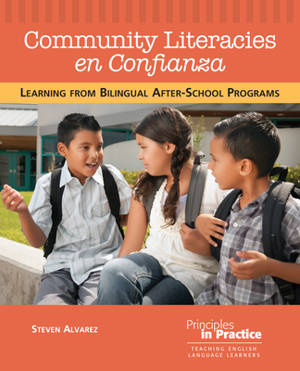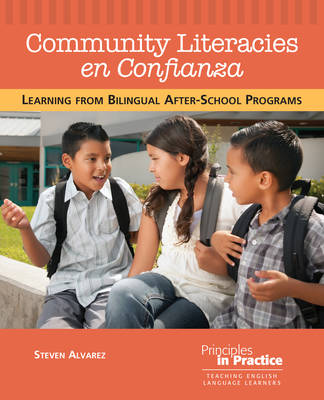
- Retrait gratuit dans votre magasin Club
- 7.000.000 titres dans notre catalogue
- Payer en toute sécurité
- Toujours un magasin près de chez vous
- Retrait gratuit dans votre magasin Club
- 7.000.0000 titres dans notre catalogue
- Payer en toute sécurité
- Toujours un magasin près de chez vous
Description
Most teachers of English language learners are not fluently bilingual, and many don't receive formal professional development in teaching emergent bilingual students.
Thus, they aren't always adequately prepared to meet the challenges of working with this growing demographic of K-12 students in US classrooms. So teachers' greatest resources, argues Steven Alvarez, are the students themselves, with both a facility in their home language and ties to their home communities. After-school programs focused on English learners, Alvarez suggests, offer a way for parents, teachers, and volunteers to come together to navigate school systems and the English language, share stories, and work to develop facility in reading and writing across languages.
Community Literacies en Confianza: Learning from Bilingual After-School Programs directly addresses teachers who are learning about emergent bilingual students. Alvarez offers ideas for approaching, engaging, and partnering with students' communities to design culturally sustaining pedagogies that productively use the literacy abilities students bring to schools. Drawing on the NCTE Position Paper on the Role of English Teachers in Educating English Language Learners (ELLs), Alvarez highlights the importance of building mutual trust, or confianza, between students, schools, and communities, both inside and outside of the classroom. Our students have as much to teach us as we have to teach them, as long as we're open to their experiences and stories as we learn and grow together.
Spécifications
Parties prenantes
- Auteur(s) :
- Editeur:
Contenu
- Nombre de pages :
- 107
- Langue:
- Anglais
- Collection :
Caractéristiques
- EAN:
- 9780814107867
- Date de parution :
- 21-06-17
- Format:
- Livre broché
- Format numérique:
- Trade paperback (VS)
- Dimensions :
- 229 mm x 188 mm
- Poids :
- 281 g

Les avis
Nous publions uniquement les avis qui respectent les conditions requises. Consultez nos conditions pour les avis.






